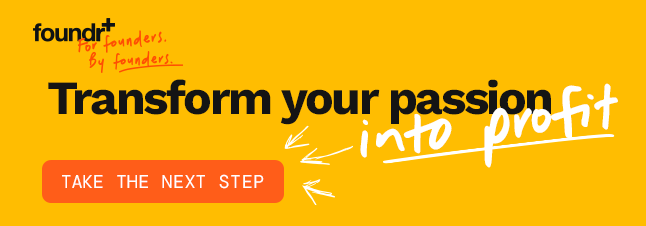The Instagram algorithm is the gatekeeper to success on the platform. Master the algorithm, and you’ll unlock access to more followers and higher engagement. Ignore the algorithm, and your account could be doomed to obscurity—regardless of how good or wanted your content is.
Instagram’s algorithms change from time to time, and we do our best to stay up to date. We have to in order to keep growing our own Instagram account.
We’ve learned a lot taking our account from 0 to 3.6 million followers. We’ve mastered content-producing frameworks, stumbled upon secrets of success, and made mistakes here and there—and we’re sharing everything we’ve learned about Instagram’s algorithm, right here, right now.
Short on Time? Here’s What You Need to Know About the Instagram Algorithm in 2024
- Instagram is moving toward promoting smaller creators over bigger creators in Explore.
- Shares, Saves, and Comments are the topic three metrics influencing the algorithm.
- Static images and carousel imagery are making a comeback.
- Crop your static images to 1080 x 1350 (4:5) so you can take up more of the screen.
- Similar to website SEO, when you upload images, you can put alt text to describe what’s in your image.
- Don’t forget to post your Reels your Reels feed, main feed, and Stories so you get more engagement.
- Shorter captions are starting to work better, so start experimenting with more “hooky” and concise language. Yes, this means the days of copying and pasting diary entries in the caption are gone. Nobody is interested in reading a novel on Instagram.
Below, we’ll break down in depth how the Instagram algorithm works in 2024 and what you need to do to get the algorithms working in your favor.
First things first, let’s get something out of the way.
Table of Contents
There’s No Official Instagram Algorithm Breakdown
How the Instagram Algorithm Works in 2024
What Engagement Metrics Matter for the Algorithm?
11 Ways to Hack the Instagram Algorithm in 2024
Users Determine Their Own Viewing Experience
There’s No Official Instagram Algorithm Breakdown
We just don’t have it. Google, Facebook, Instagram, Twitter, and other algorithm-inspired feeds don’t publicly post every attribute that goes into why they push one piece of content to the top of a feed and another to the bottom.
It’s a blessing and a curse.
It’s a blessing because if these companies did reveal every detail that goes into their algorithm computations, then profiles would manipulate their accounts and content to satisfy the algorithm—often at the user’s expense.
Yes, many profiles already do that to an extent, but it’d be on a greater scale.
It’s a curse because plenty of Instagram accounts spend hours crafting top-notch content that never gets in front of the people who’d actually love and appreciate it. What a shame.
However, from time to time, Facebook and Instagram let users know a bit about their algorithms. We know our interactions (comments, likes, views) impact what content we see. We also know that algorithms are different based on the Feed, Explore page, Reels, and Instagram Stories.
Below, we’re going to explain the Instagram algorithm in 2024 as far as we know it. Our tips and best practices include information from Instagram (the source itself), as well as lessons we’ve learned along the way as we’ve grown the Instagram Foundr account to 3.7 million followers.
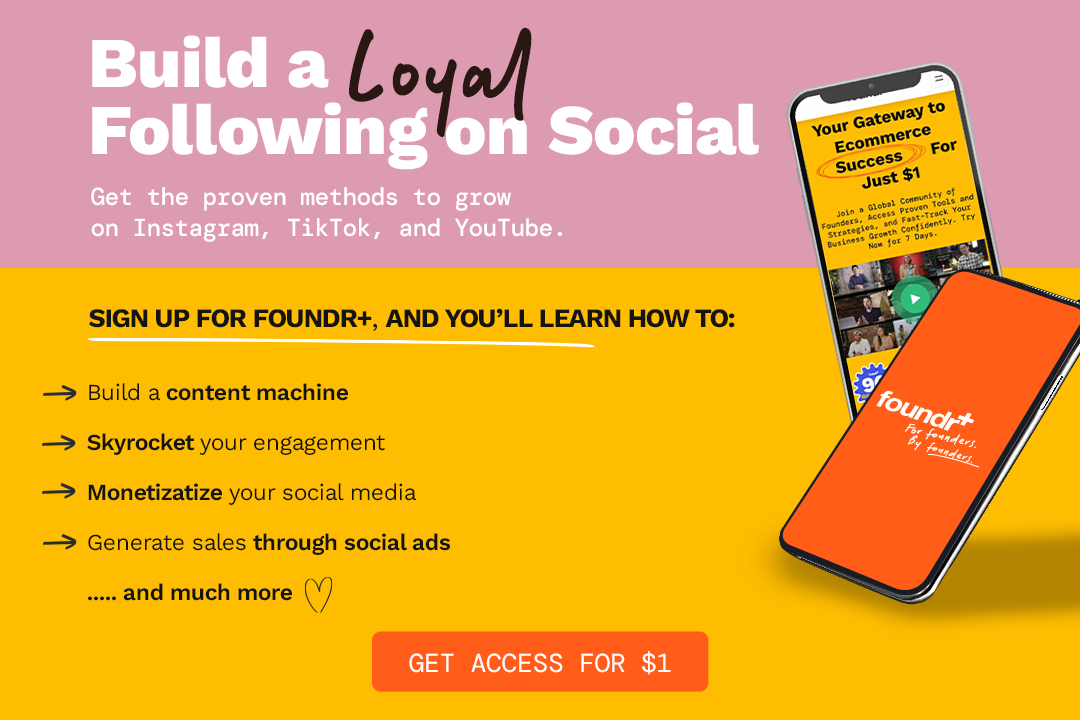
How the Instagram Algorithm Works in 2024
There’s actually not a single Instagram algorithm at play—there are “a variety of algorithms, classifiers, and processes, each with its own purpose.”
In the beginning, Instagram just featured images chronologically. Now, each part of the app (Feed, Stories, Reels, Explore) uses its own algorithm to help people content.
Here’s what Instagram considers for different parts of the platform.
Instagram Algorithm for Reels
The most important update to Instagram in 2024 is that they’re going all-in on Instagram Reels. If you’re not focusing on Reels, then you’re losing on your account.
IGTV is dead, meaning you can’t horizontal or long-form video because Instagram is prioritizing the short-form video format above all else. In order to shift your content production process to maximize the Reels algorithm, here’s what you need to do:
- Ensure all video content is cropped to 9:16.
- Videos should be anywhere from 30 seconds to 90 seconds.
- Optimize content to be quick, engaging, and entertaining.
It deprioritizes content that’s been visibly recycled from TikTok or that’s low-resolution. Instagram prefers Reels that gain likes, comments, shares, and views. It also recognizes when users save videos or add Reels to their Stories.
Don’t Skip: 26 Expert Tips on How to Get 10k More Followers on Instagram
Instagram Algorithm for Instagram Stories
Instagram Stories operates similarly to the Feed. Besides ads, the content you see in Stories is from those you already follow, not new accounts. However, you don’t have the ability to like or comment on Stories, so Instagram uses different signals:
- Direct Messages (DMs): Does a user view your story and respond?
- Profile Clicks: Does a user click your profile to see more of your content after watching a story?
- Finish or Skipped: Did your user watch your Stories in their entirety, or did they get bored and skip to the next one?
Users turning on notifications for your Stories or sharing a story with their friends (or on their own Stories) will also impact the performance of your content.
All these actions are signals that impact whether the algorithm will give preference to your content. Create engaging content that’s going to get your users to do something the algorithm likes. Experiment with surveys, stickers, and Q&As to get your followers to take action on your content.
Instagram Algorithm for the Feed
While Instagram has added Stories and Reels, the Feed is the platform’s home. You’ll mostly only see content from those you already follow here, and that’s the first significant algorithm nuance. When you’re on the Explore or Reels tab, content from your friends and family isn’t going to be prioritized. Sure, it’ll be there, but other factors will carry more considerable weight.
Next, the Feed’s algorithm looks at a few other signals to determine what gets preference at the top:
- Who Made the Post: Is it someone you engage with often? Do they have a large, engaged following? Do they typically produce great content?
- Information About the Post: Is the content an image or a video? If it’s a video, how long is it? What time of day was it posted? Are you viewing the content on your phone or desktop? Is there a location attached to the post?
- Your Activity: What type of content have you looked at and engaged with in the past? What are the chances you’ll leave a comment?
Hack for 2024: Similar to website SEO, when you upload images, you can put alt text to describe what’s in your image.
Instagram Algorithm for Explore
The Explore tab is where users go to find brand-new content that’s relevant to their interests. Because of this, you’ll find that almost all of the images and videos you see are from accounts that you don’t follow (yet). You might see a post or 2 every now and then from accounts you follow, but those fall into the minority.
Instagram says, “the most important actions we predict in Explore include likes, saves, and shares.” The Explore algorithm also considers other factors:
- Who’s Posting the Content: Is the profile an account that several of your friends follow? Have you interacted with them before (through the Explore page or Reels) but not followed them yet?
- Information About the Post: Are other users quickly finding, liking, commenting, and sharing this content? Is it recent and timely? Which users have liked this post? What other kinds of content do they typically engage with?
- Your Activity: Have you interacted with similar content in the past? Do you typically save this kind of content or share it to your Stories?
Instagram’s algorithm is trying to predict your interests. For example, if you follow Manchester United and like their content, the platform might try to show you other football clubs. Or, the platform might think you’re generally interested in sports, and they may try to show you basketball or baseball videos.
If you like those suggestions, they’ll keep showing you more of that content. If you don’t, they’ll move on and try to find something else that’ll keep you engaged.
Hack for 2024: Instagram is moving toward promoting smaller creators over bigger creators in Explore.
What Engagement Metrics Matter for the Algorithm?
If you have a business account (which you should), plenty of metrics are at your fingertips. However, that doesn’t mean each data point matters to the algorithm. Back in the day, it was all about double taps and follows, but with the rise of pay for followers and bots, Instagram decided to reward content on the Explore page and feed based on more authentic interactions.
And remember, the algorithm rewards content so people stay on the platform longer. So here are the three main engagement metrics you should optimize for your Instagram account:
- Shares: Are people sharing your content with friends and followers that bring them back to the platform?
- Saves: Are your followers saving your content to view or engage with later?
- Comments: Is your content provoking conversation and reaction in the comment section?
- Likes: The original engagement metric for IG…double taps still reign.
- Retention: How long are people watching your video content? Are they completing the video?
11 Ways to Hack the Instagram Algorithm in 2024
Remember the overall purpose of the Instagram algorithm: to keep people engaged and on the platform. Instagram is a for-profit business that relies on advertising to make money.
The more users it keeps happy and swiping around the platform, the better it is for the business. If your content accomplishes that goal for Instagram, the algorithm will likely be in your favor.
With that said, here are our top (proven) tips for getting the Instagram algorithm to work in your favor:
1. Post Frequently and Consistently
The more you post, the faster you grow. However, you have to be consistent. You can’t publish 10x today, 2x tomorrow, and 4x next week—the Instagram algorithm doesn’t like that. It wants to see consistency.
Start by posting 1x a day, every day. You might be tempted to do more, but don’t rush into things too quickly. Remember, the first priority is quality. Once you can get into a habit of producing excellent content regularly, you can begin to scale and post more frequently.
Slowly ramp things up. Experiment with posting 2x a day for a couple of weeks. Then, bump it up to 3x a day.
As of now, we post anywhere from 6 to 8 pieces of content per day, and it works great for our account and followers.
2. Test, Test, Test
Because there is so much content on Instagram these days, it’s getting harder and harder to stand out. Some creators believe the algorithm will only reward content with a 20% engagement rate, meaning you have a one-in-five chance for your post even to be prioritized in the feed or Explore page.
So, how do you combat those odds? By testing as much as possible and taking chances.
Don’t treat your feed on Instagram as sacred as your website or product page. Instagram is a tool to reach and engage with people, so take swings. If you miss, then learn from it and keep going.
Your audience will forget about your misses anyway.
Or, more likely, they didn’t see it at all.
3. Double Down on Reels
When cannot emphasize the importance of Reels enough for growth on Instagram. Because of the success of TikTok, Instagram is now chasing the popularity of short-form videos. Will it last? Who knows, but for now, you need to put a majority of your energy into creating engaging Reels content.
The goal is to stop the scroll.
And the good news is that the creative mindset to produce content on TikTok now can be carried over to Instagram. Just make sure that you natively edit your short-form video within the app. Both platforms will penalize you for repurposed formats.
Hack for 2024: Don’t forget to post your Reels to BOTH your Reels feed and main feed so you get double the engagement.
4. But Don’t Sleep on Static
Where is everybody on the internet spending their energy on?
Short-form video.
But if your audience’s feed is full of videos trying to grab their attention, what actually would stand out?
How about something completely different?
A static image.
*Gasp*
Yes, static is making a comeback.
In our recent interview with paid ad expert Nick Shackelford, he told us that the most successful ads he’s run for his clients are all static.
“We’re still primarily image based on a lot of what’s working today,” Shackelford says.
Why?
Because it’s standing out in people’s feeds amongst a barrage of video content.
Sometimes the old ways are the best ways.
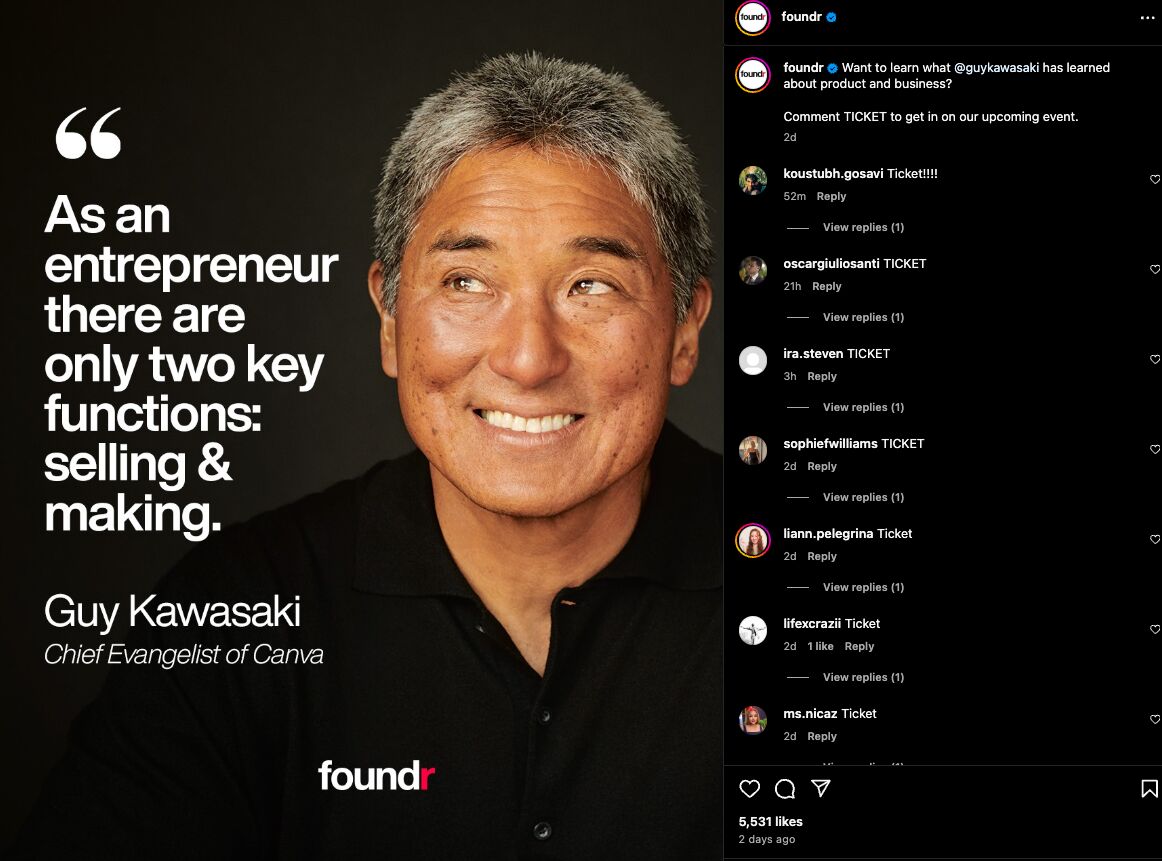
5. The Unicorn Strategy
We used this strategy to grow our Instagram account from zero to millions of followers. It’s a simple method of “imitation is the sincerest form of flattery,” or in the modern context—following the trends. Here is our step-by-step unicorn growth strategy:
- Look at someone else’s account that you want to be like.
- Analyze their top-performing posts.
- Think about how you can create it better.
For example, our most viral video ever was inspired by the “Guy with a Sign” account. But we added another layer to fit with our message of how entrepreneurship can provide freedom and opportunity. Have a look below:
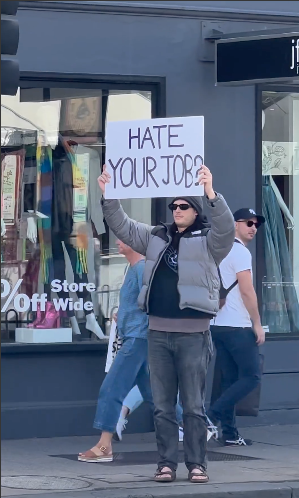
6. Treat Your Audience Like Gold
Instagram wants to promote content that keeps users engaged because that’s what’ll keep people on the platform longer.
Respond to every like, comment, and DM. Visit your audience’s profiles to like and comment on their content, too. These types of interactions will get the Instagram algorithm working in your favor, and it’ll also help you create genuine relationships with your followers.
Remember, there’s a person behind every username and comment. People get excited when brands (even small, local brands) interact with them, and it encourages them to like, comment, and share more. This creates a recurring cycle of engagement, algorithm promotion, and more engagement.
7. Hashtag and Caption Quality
When it comes to hashtags and the Instagram algorithm, it’s about quality over quantity. If you’re starting a new account or refreshing a strategy, follow these steps:
- Use Explore to research trending hashtags.
- Focus on 5 hashtags.
- Change them for the first 30 days of every post
- Figure out what hashtags work the best.
- Relate them back to your content.
Remember, your hashtags need to always relate to your posts or profile content. That way, the algorithm connects your niche to a similar audience.
What about captions? Do they even matter anymore?
Although captions aren’t important as they use to be in regard to the Instagram algorithm, they still are powerful tools to convey your message.
Provide context to your posts. Tell stories. Your goal is to use an image or video that gets your audience to stop scrolling and take a look—then, you need a powerful caption that’ll get them to read and take action on your content.
Your audience is made up of different personas and personalities. Some like to read, others like to watch, and a few will want to glance. Use all of Instagram’s functionality to capture all your audience’s interests.
Want inspiration for writing excellent Instagram captions? Check out Gretta Rose van Riel on Instagram to see what first-class captions look like.
Pro Tip: Shorter captions are starting to work better, so start experimenting with more “hooky” and concise language. Yes, this means the days of copying and pasting diary entries in the caption are gone. Nobody is interested in reading a novel on Instagram.
8. Create Carousels
Instagram carousels are posts with multiple images or videos that users swipe to look through. It gives you additional opportunities to engage your audience, provide value, and earn that like or comment.
Mediocre carousels will feature several disjointed pictures that maybe the caption ties together. Incredible carousels flow together smoothly, telling a story from start to finish or expounding on a thought in more detail.
Carousels are also a great way to showcase diversity in your feed. We suggest mixing carousels and images in between Reels. Then you can find what works and double down on it.
Check out Chris Do on Instagram to see how it’s done. Notice how the images in his carousels are connected. You can do the same thing (for free) using a simple design tool like Canva.
Hack for 2024: Make the first slide in your carousel an infographic with a title, and then swipe to a video or sequential slide.
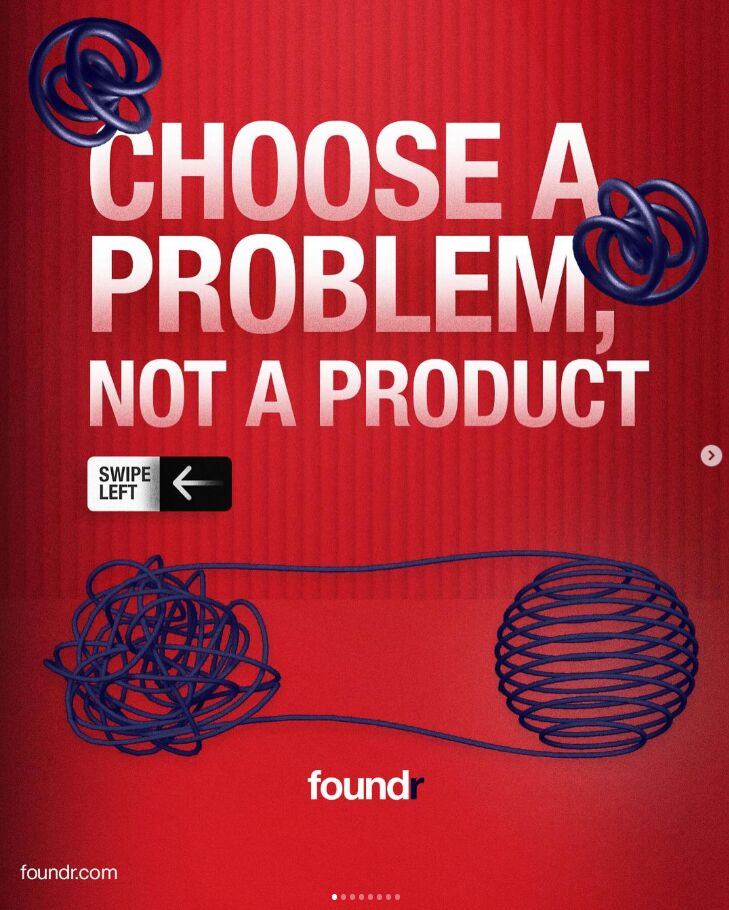
9. Nurture Your Audience with Stories
Instagram Stories give you additional real estate and engagement tools to draw in brand-new and returning followers. They may play as heavily into the Instagram algorithm as Reels, but there’s no better tool to engage with your audience (and, ideally, sell to your audience).
Think about your typical Instagram experience. Sometimes you open up the app, and you probably notice a story you’re interested in from someone you follow. You watch it, watch another, and watch a few more before closing the app and getting back to your day.
By putting your content in your follower’s Feeds and Stories, you’re getting multiple opportunities to engage and interact with them. Engage them more, and Instagram is going to show your content more.
10. Use the Right Formatting
Instagram has preferred sizes of content. Use the proper sizing, and Instagram will favor your content. Fail to use the appropriate sizing, and they’ll ding your performance with the algorithm.
Here are the suggested sizes for square and vertical content:
- Square (Static images): 1080px x 1080px (1:1)
- Vertical (Stories and Reels): 1080px W x 1920px H (9:16)
Hack for 2024: Crop your static images to 1080 x 1350 (4:5), so you can take up more of the screen.
11. Optimize for View Duration
Instagram is identifying and pushing Reels content that is the most engaged with. For video, that doesn’t mean generic “views.” It’s how much time the viewer spends watching the video. So, make sure your video content isn’t just a hook but delivers on the promise of the title and video thumbnail. The longer your audience watches, the more Instagram will recognize that the content is worth sharing with more people.
“Kill the ego and say, ‘What are the viewers watching, and can I do that?’” – Justin Flom
Check out our interview with former magician-turned-short-form creator Justin Flom. In this episode, Flom reveals how he approaches his content creation, which has amassed 30 billion views on YouTube Shorts, Instagram Reels, and TikTok
Users Determine Their Own Viewing Experience
Instagram has algorithms to determine what factors to prioritize, but your followers (and would-be followers) impact the algorithm on a day-to-day basis.
What they like, view, and comment on influences the algorithm. However, equally as important is what they don’t like, watch, or comment on. Every interaction or non-interaction is a signal to the algorithm.
Here are the factors of the Instagram algorithm in descending order of importance:
- Shares
- Saves
- Comments
- Avg. View Duration
- Likes
- Views
- Follows
- Unfollows
- Blocks
- Link clicks
- Reports
- Bookmarks
- Mutes
- Hides
The algorithm ultimately helps users see what they want to see, and they get to control that experience with every interaction they have on the platform.
Keep Learning: 10 Instagram Growth Hacks For More Engaged Followers (Without Running Ads)
Ready to Grow an Engaged Following?
Tired of spending time on Instagram with little to show for it? We’ll help you put an end to that once and for all.
Take our Instagram training course to learn the step-by-step processes we used to go from 0 to 500K+ followers in just 12 months. We’ve created a replicable framework for creating amazing content, growing huge followings, and turning followers into income.
Ready to put your Instagram growth on overdrive? Get the course and more for $1 through foundr+.
